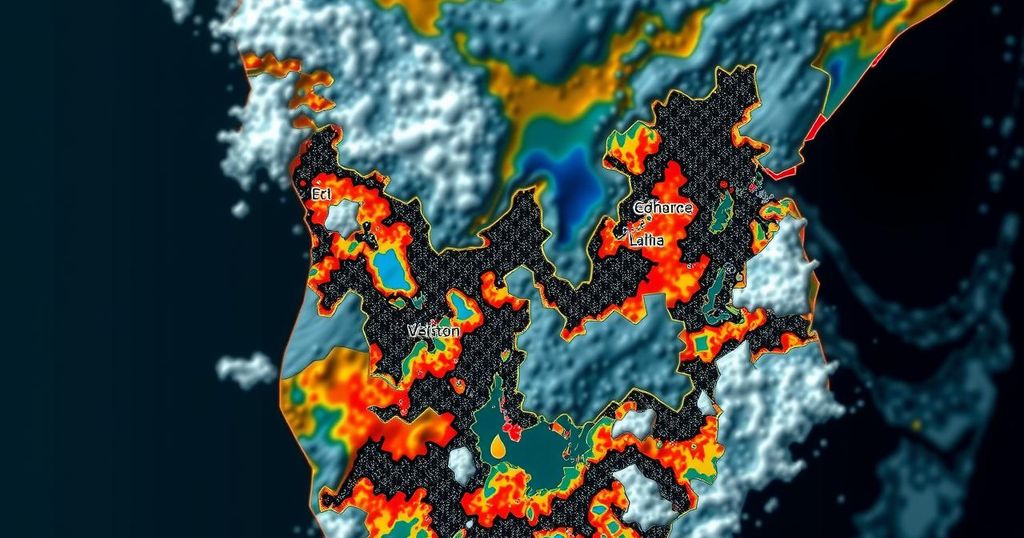A recent study by international scientists reveals that climate change intensified the rainfall causing significant floods in Cameroon, Chad, Niger, Nigeria, and Sudan, leading to 1,500 deaths and displacing over a million people. Experts warn that with continued warming, intense rainfall may occur yearly in these regions, signaling the urgent need for investment in disaster preparedness.
Recent research highlights that catastrophic rains exacerbating floods in various African regions—namely Cameroon, Chad, Niger, Nigeria, and Sudan—were significantly intensified due to human-induced climate change. This assertion was made by an international consortium of scientists who rendered their findings public on Wednesday, stating that global warming has led to a 5-20% increase in the intensity of seasonal downpours within the Niger and Lake Chad basins in the current year. The World Weather Attribution (WWA), a collective of scientists focusing on the relationship between climate change and weather anomalies, elaborated that similar levels of intense rainfall could potentially become a regular occurrence should the current trajectory of warming persist. Izidine Pinto, a researcher affiliated with the Royal Netherlands Meteorological Institute, commented on this trend, noting, “Spells of heavy summer rainfall have become the new normal in Sudan, Nigeria, Niger, Cameroon, and Chad.” This year’s flooding has had a tragic toll, with approximately 1,500 fatalities and over a million individuals displaced across West and Central Africa, as reported by the United Nations Office for the Coordination of Humanitarian Affairs (OCHA). The excessive rainfall has also led to water levels surpassing the capacities of dams in Nigeria and Sudan. Furthermore, experts predict that should global temperatures reach an increase of 2 degrees Celsius (3.6 degrees Fahrenheit) by the 2050s, occurrences of such downpours would likely happen nearly every year in the affected areas. The WWA advocates for heightened investment in early warning systems and enhancements to dam infrastructure to mitigate these crises. As Joyce Kimutai, a researcher from the Centre for Environmental Policy at Imperial College London, astutely pointed out: “Africa has contributed a tiny amount of carbon emissions globally, but is being hit the hardest by extreme weather.” She emphasized the responsibility placed upon the upcoming COP29 climate talks in November to ensure that affluent nations provide substantial financial support aimed at aiding these vulnerable regions.
The issue of climate change remains a pressing global challenge, particularly for regions like Africa that contribute minimally to carbon emissions yet disproportionately experience the consequences. The intersection between climate change and extreme weather conditions, especially in the African context, necessitates a comprehensive understanding of how rising temperatures influence rainfall patterns and subsequent flooding events. Recent studies underscore the urgent need for developed nations to support adaptation and mitigation efforts in developing countries, particularly in the lead-up to pivotal climate negotiations such as COP29.
In summary, the alarming increase in rainfall intensity in flood-afflicted African regions, attributed to climate change, underscores the urgent need for global action and funding. The findings by WWA reinforce the notion that climate change exacerbates natural disasters in vulnerable regions like Africa, where the economic and infrastructural capacities to deal with such crises are often lacking. The forthcoming climate talks will be crucial in determining the direction of international financial support for affected nations.
Original Source: www.usnews.com






